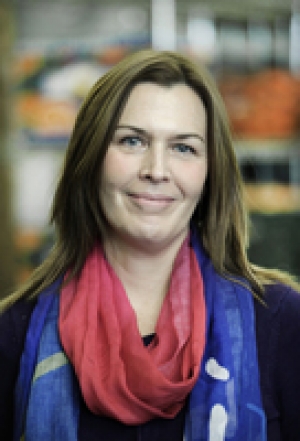 As part of WhyHunger’s celebration of Black History Month in the United States, we’ve shared stories of just a few of the important contributions Black Americans have made to our food and agriculture systems and the struggle for food justice. There is so much to celebrate; it could not possibly be contained in one month or year. I’d like to take this moment, in honor of Black History Month, to offer my own reflection and share my perspective.
As part of WhyHunger’s celebration of Black History Month in the United States, we’ve shared stories of just a few of the important contributions Black Americans have made to our food and agriculture systems and the struggle for food justice. There is so much to celebrate; it could not possibly be contained in one month or year. I’d like to take this moment, in honor of Black History Month, to offer my own reflection and share my perspective.
I believe, as is reflected in WhyHunger’s Theory of Change, that we cannot work on the issues of hunger and poverty without working at the intersection of hunger and race. Through more than 40 years of work, we know that racial injustice and privilege are at the root of economic injustice and that economic injustice is a root cause of hunger. When we define the problem of hunger as one of food distribution, we mask our ability to see the root causes that perpetuate the problem and leave us with this chronic social condition that is in fact solvable.
In my work at WhyHunger and in my everyday life, I am encouraged by the continued awakening that is occurring around the deep inequities, structures and systems that keep people of color oppressed in the U.S. We need to further this spiritual transformation through action and a rallying conviction that building racial equity is our great moral imperative. We need to be bold in the certainty that my freedom is tied directly to the freedom of my Black neighbors and friends. By confronting our history of racism and acknowledging the racism that is still prevalent today, we can take an initial step to heal as a nation and embrace our shared humanity.
I know in my own life that difficult conversations are happening to better understand how racism’s painful roots run deep into the systems and institutions that shape our world today. For example, our agricultural system that puts food on our tables was built on the backs of free human labor in the form of Black slaves ripped from their homeland. And we’ve constructed countless other systems and practices that are wrought with inequities to offer opportunity and privilege to some, while holding others down based on skin color. By talking about that painful truth and holding space for it in our work and lives, we can better understand the struggle for Black freedom and support it in meaningful ways. I have found in my own life it is essential to acknowledge that racism exists and to talk openly about it without fear of judgment. Those conversations need to happen first and foremost with White people and they need to be coupled with action.
As a White mom, executive, friend, advocate and student of history, I know that I have benefited from systems and institutions that offered me privilege and opportunity because of the color of my skin, and yet I am committed to trying to change those systems. I hold a deep conviction about the need for racial unity and equity so that we can fully prosper as a people and as a country. White people need to start talking to other White people without being afraid of feelings of guilt or shame and be cognizant of what Martin Luther King Jr. called the “silence of good people.” By being silent we are complicit in accepting the structures that keep people of color down. This is a blind spot for many of us. But there is no denying the truth when you examine things like the industrial prison system, the prevalence of redlining, and how discrimination in the workplace and hiring practices persist.
I will never know what it is like to be Black in America. I was born with the privilege of being White. I don’t fear being stopped by police. I was taught they were on my side and will help me. I don’t have to worry about being turned down for a job because of the name on my resume. I remember decades ago being in one of my first deep conversations about race in America with several colleagues and being struck by how different the daily experience of walking down the street was for my two Black male co-workers. Their stories conveyed a palpable sense of fear and unease that shook me to the core. The daily struggle for Black Americans is real. Why do they experience life so differently than me? While we may never share the same experiences, we can work together to build a just world. How can I use my power and privilege to truly be an ally? How can WhyHunger be an organization that follows anti-oppression practices and builds racial justice throughout our work both internally and externally? How can I, as a White woman, champion racial justice?
There is not one answer or one quick fix. I know that this work requires continual analysis and growth. That it demands partnerships built on trust and respect with Black leaders and Black communities. That it requires White folks to step back and listen, and to create the space for Black leadership and self-determination. That it requires the courage to talk and act in solidarity with the Movement for Black Lives. That is what allyship looks like to me and I know we can all do better in working to create a just world where everyone thrives.


